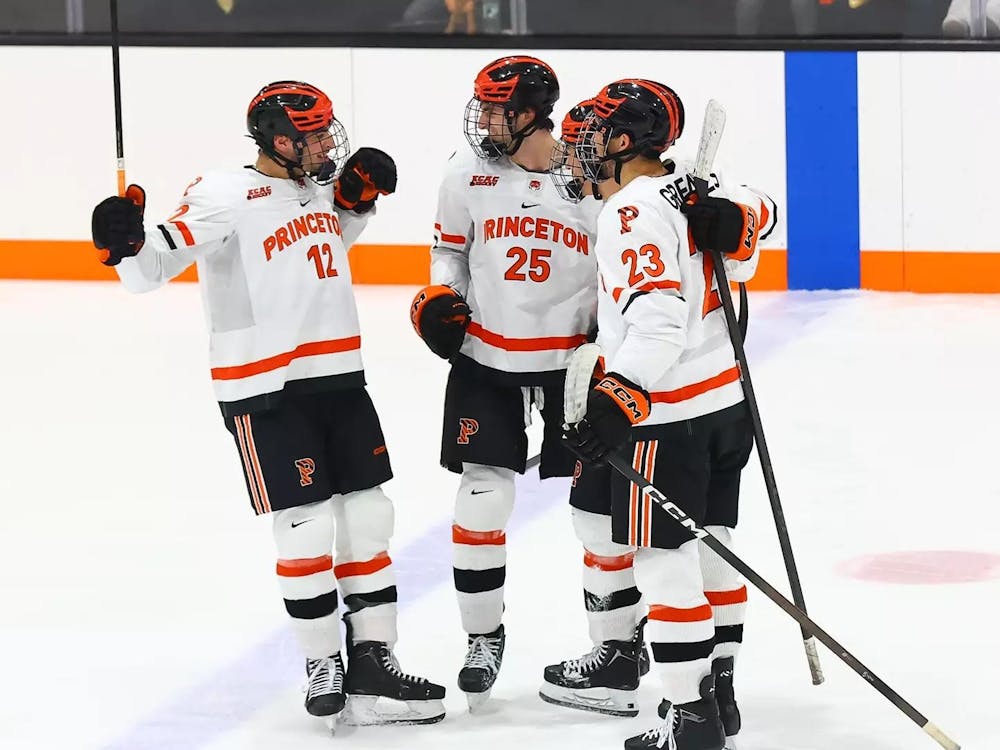The Daily Princetonian sat down with Dean of the Faculty Gene Jarrett ’97 to discuss diversity and inclusion initiatives, undergraduate expansion, and administrative bloat. The full transcript of the interview can be accessed here.
This is Jarrett’s first sit down Q&A with the ‘Prince’ since he started in his role on Aug. 1, 2021 after serving as a Chair of the English Department and Associate Dean of the Faculty for the Humanities at Boston University. In addition to his role as dean, Jarrett is the William S. Tod Professor of English.
Here are key takeaways from the interview.
An administrative hire to focus on faculty diversity
Increasing the diversity of the faculty has been a goal of the University, especially since the University announced new initiatives on DEI in the wake of the killing of George Floyd. In his 2022 interview with the ‘Prince,’ President Christopher L. Eisgruber ’83 announced a goal to “increase the number of underrepresented minorities by 50 percent over a period of five years.” In February, the University released its second annual Diversity, Equity, and Inclusion (DEI) report which showed that 69 percent of tenured or tenure-track faculty are white.
Asked about the feasibility of this goal, Jarrett said, “I tend not to view our success only in terms of metrics.” Instead, he pointed to his appointment of Professor Fredrick Wherry who serves as the Townsend Martin, Class of 1917 Professor of Sociology and the Director of the Presidential Postdoctoral Fellowship Program to the position of Vice Dean for Diversity and Inclusion.

Jarrett said that “[Wherry] enables us to be even more strategic than we have been in the past in developing priorities and updating our guidelines,” as it shifts responsibilities that would have otherwise fallen to Jarrett.
Touts recent increases in postdoc wage floor
Earlier this year, postdoctoral researchers at Princeton called on the University to increase wages.
Jarrett pointed to the University’s decision to give postdocs a raise of over ten thousand dollars which increased their minimum salary to $65,000 from $54,840. Postdocs had asked for a raise to $68,500, a 25 percent increase that would match that of what graduate students received in 2022.

Jarrett said the new wage floor is “among the highest in the country.”
Jarrett also noted that he hired Alice Seneres to be the Senior Assistant Dean for Postdoctoral Affairs.
“Princeton has been one of the leading institutions with respect to supporting postdoctoral researchers, recognizing their contributions to higher education, and ensuring that they're in the best possible position to succeed professionally,” he said.
A defense of the increased administrative size of the University
Referencing concerns of administrative bloat and the two new administrative positions he created, Jarrett said, “I’m inclined to think that the ways in which we’ve been investing in talent and leadership are in the best interest of ensuring that the university can fulfill its mission.”
In the case of Wherry, he noted that having Wherry enables him “to establish a set of priorities that could last a very long time.” As Dean of Faculty, he noted such issues could be at “the corner of your desk.” In contrast, he said, Wherry “is committing much of his time” to faculty diversity.
“We could have a world where we have very limited expertise in people in leadership roles such that there are very few opportunities for leaders to interact with members of the community. That’s an alternative kind of world,” he added.
“The University has changed over time and in proportionate ways, the leadership structure changes too,” Jarrett said.
Computer Science is growing, but the humanities aren’t dead
The Class of 2026 is the largest in University history. As a result of that, many popular first-year classes have been full, or have not had enough seats for students and some faculty have reported feeling strained due to their increased class sizes. Jarrett said, “we handle questions about growth on a year-to-year basis” and at the department level.
Jarrett referenced that the University may increase the size of the Computer Science department.
“I would say that certainly computer science has been a popular field where we’re doing our best to ensure that students have the kind of instructional support that they need, but because we have upwards of 30 to 40 departments that are thinking about how they wish to recruit faculty in the years ahead, there’s no one-size-fits-all kind of analysis,” Jarrett said.
Additionally, Jarrett echoed Eisgruber’s previous comments about prioritizing the strengthening of the School of Engineering and Applied Sciences, while also highlighting his own position as a professor in the humanities.
He pushed back against a narrative of the death of the humanities: “People tend to focus on the number of majors, but you should also examine the extent to which students are taking classes in the humanities. The enrollments in the humanities are actually at, at its highest rate, if not one of the highest rates, over the past several years,” Jarrett said.
Reviewed practices for tenure
Another hot-button issue on campus that Jarrett said is primarily handled on the departmental level is tenure. The tenure process recently garnered criticism from students when, after Professor Erin Huang was denied tenure in 2022, a group of over 300 students and faculty wrote an open letter to the University protesting that decision.
Over the past academic year, Jarrett said he has “worked with chairs and directors across the University to update their tenure and promotion policies and procedures.” Many of the previous existing policies, he said, had not been updated in over a decade.
“Ensuring that we have alignment of being systematic and consistent across the academic units, and ensuring that all of us within respective departments were engaged in this process of updating policies and procedures,” Jarrett said. “That is something that may not make a headline in a newspaper, but it’s beneficial long term to our University.”
Julian Hartman-Sigall is an assistant News editor for the ‘Prince.’
Please send corrections to corrections[at]dailyprincetonian.com.








